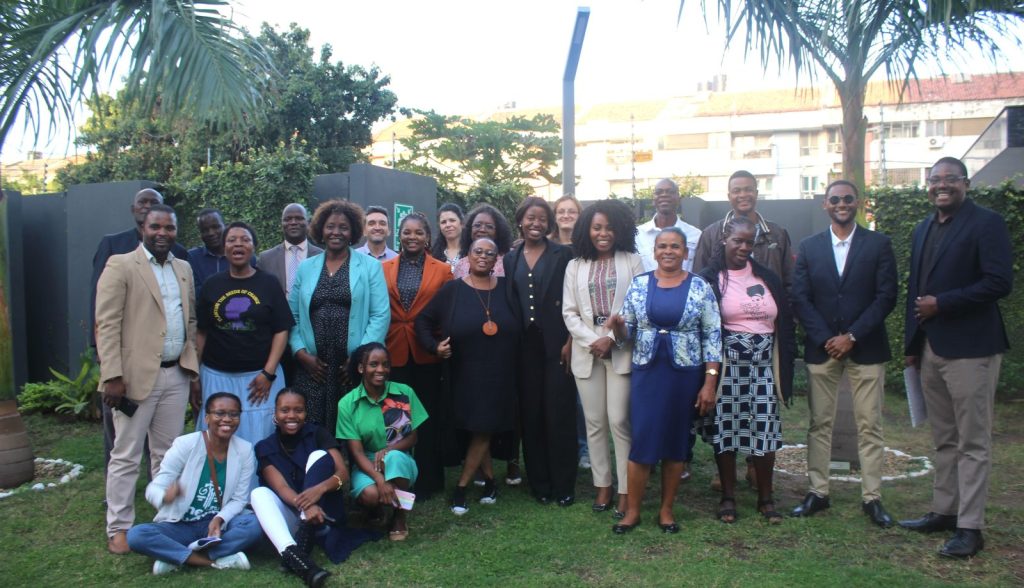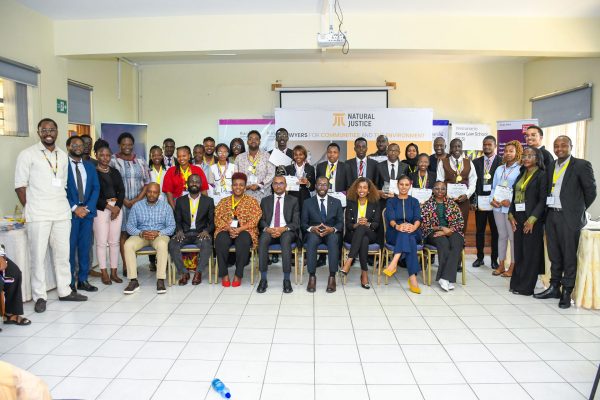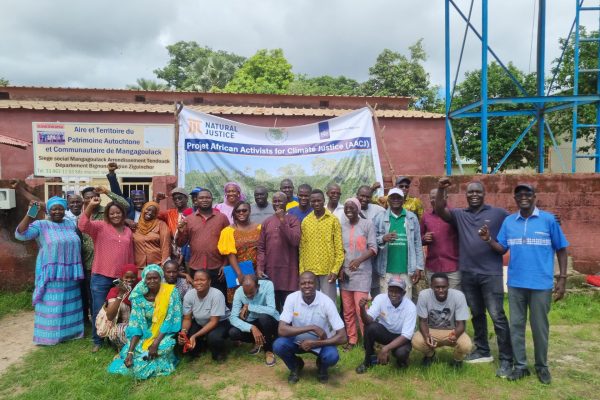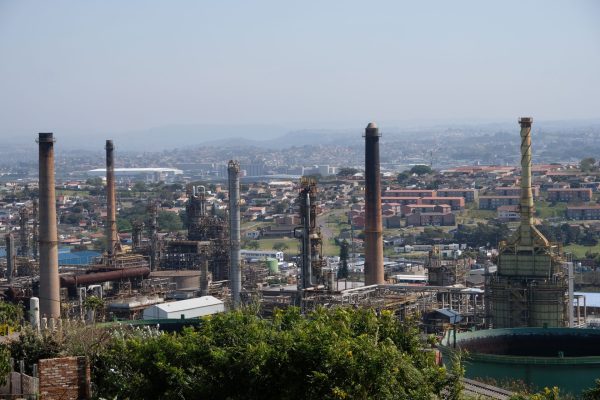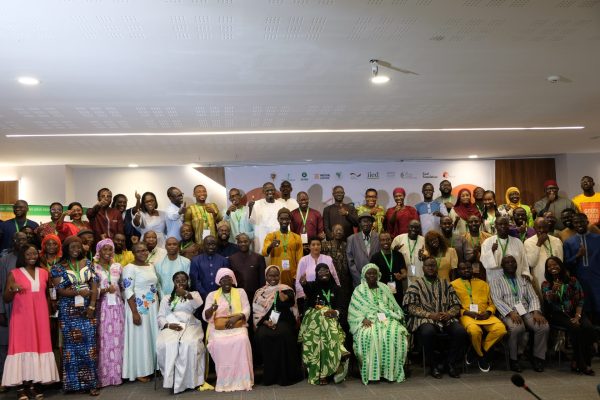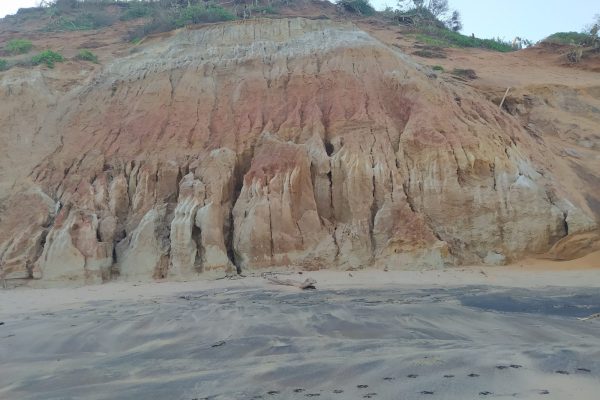Women should be at the centre of key decisions affecting Mozambique’s shift to cleaner energy sources. While this is not currently the case for many countries – the role that women need to play in ensuring that the energy shift is fair and equitable, is becoming much clearer to various stakeholders in the Mozambican energy sector. To this end, Natural Justice together with its AACJ Consortium partners – Muleide, PACJA and AYC, hosted a two-day high-level dialogue in Maputo.
“A just and inclusive energy transition in Mozambique will only be possible with the participation of women – not just as beneficiaries, but as leaders, innovators and agents of change in every community, company and decision in the energy sector,” says Vânia Guila from Associação Moçambicana de Energias Renováveis (AMER), based in Mozambique.
Vânia Guila was one of several stakeholders who attended the dialogue, which brought together representatives from local communities, women-led organisations, civil society, academia and decision makers. Discussions centred on how Mozambique’s Just Energy Transition (JET) Strategy responds to the real needs of Mozambican women and identify pathways of action that could bring women’s concerns to the fore in decision-making processes on Mozambique’s Just Energy Transition.
One of the aims of the meeting was to allow partners and participants to share experiences of JET projects in Mozambique and jointly develop recommendations on how improve women’s involvement in the JET journey.
JET strategy and status in Mozambique
Mozambique approved its Just Energy Transition (JET) Strategy in December 2023 as a response to the country’s need for a reliable, sustainable and modern energy system with fair access for all Mozambicans.
The country is one of the lowest contributors to carbon dioxide and equivalent emissions causing climate change and yet is one of the most vulnerable countries to the impacts of climate change in the world. The country is also already experiencing loss and damage attributed to climate change, especially destruction caused by changing rainfall patterns, extreme weather events, droughts, tropical cyclones, reduced food production, losses of life, induced displacement, reduced economic growth, and others.
Despite being endowed with abundant natural resources (natural-gas, hydro-power resources, arable land and a sought-after coastline) it is reported to be the tenth poorest country in the world.
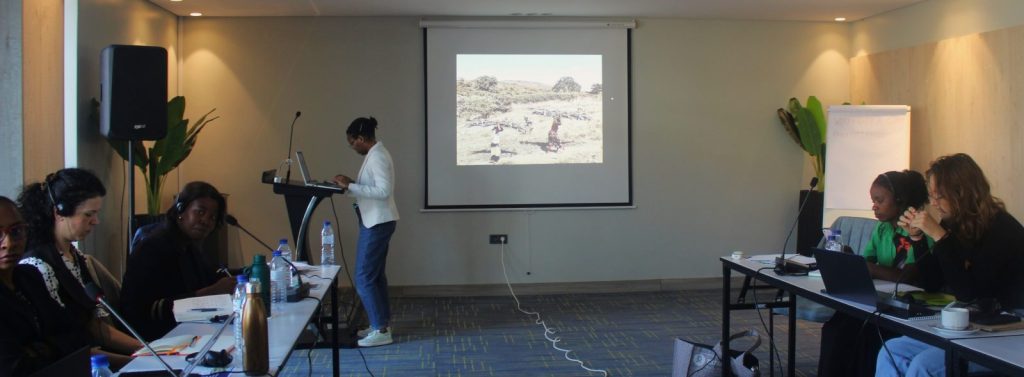
Mozambican women need to be integral to the new strategy
A photograph taken by Natural Justice Programme Officer Leopoldina Gouveia, showcased during the dialogue became a significant talking point on the role of women in the transition to clean energy in Africa. The photograph depicts a woman and a young girl walking through a coal mining concession in Tete carrying stacks of firewood. This simple image, sat like a powerful weight on discussions. It captures the difficult and often forgotten role of Mozambican women. They have the difficult task of gathering resources for fuel, while their land is used for mining resources that contribute to fuelling a country’s energy needs. While they live in energy poverty, people in cities and other countries benefit from their land and sacrifices.
This reality clearly shows the need for human rights-based approaches to policy and law making with regards to the continued development of fossil energy sources and their illusionary benefits for communities. JET demands that energy poverty is addressed and the benefits of the transition accrue to everyone.
Fresh ideas and action is needed to create the path forward
At the end of the dialogue, there was consensus that the urgency around the need to move towards sustainable and equitable energy systems is going to require more than stakeholder discussion. Participants are looking for ways to take the next steps needed to create the necessary impact across Mozambique that is inclusive.
Ruben Ferreira Morgado (Carlos Morgado Foundation) says: “More than powerful discussions that we had in this forum, I believe that actions are going to ensure the end result. While talking its important, impactful actions from contextualized and engaging ideas are key for a sustainable development of Mozambique and the region.” –
In addition, Lauren Nel, Natural Justice Just Energy Transition Africa Coordinator, said that energy justice is the foundation for Just Energy Transitions. She said that women and Indigenous communities need to have a voice in order for processes to be fair and equitable.
“Communities’ rights to public participation and access to information about energy projects, are essential to ensuring that no one is left behind – including women and Indigenous people – who are key partners in the Just Energy Transition (JET).” Looking back at the picture of the woman and girl, it reflects the long journey ahead – the important and varied coordinated efforts by all actors, to change policy to action, and bring in a new sustainable and less burdensome reality for women and girls for the meaning of the word “just” in a Just Energy Transition to be fulfilled.
“Participating in this event reinforced the certainty that women’s involvement is fundamental to building fairer and more sustainable societies. When women have a voice, space and opportunities, they not only transform their own realities, but also drive significant change in the communities and sectors in which they operate.” – Jessica Vilanculo- Mozambique Women of Energy (MWE)

